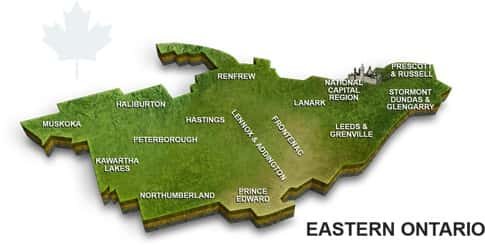Ottawa Construction News staff writer
The Greater Ottawa Home Builders Association (GOHBA) and the City of Ottawa have started reviewing changes to Ottawa’s development charges, that will culminate in city council’s approval of a new bylaw on June 11.
The process is complex, technical, and has more than its share of uncertainty, especially as municipalities lobby the provincial government for changes to the Development Charges Act to allow the city to collect a higher percentage of charges for transit and infrastructure projects, and for work that hasn’t yet started.
GOHBA president Pierre Dufresne says the home building industry must gather information and data to ensure the city only claims the charges it is allowed under law – and these calculations are important, because the city needs to be able to justify its charges.
“At the end of the day, if we feel the change is incorrect or for unjustifiable purposes we can appeal to the OMB (Ontario Municipal Board),” he said.
Development charges continue to be an appealing revenue source for the city because the funds don’t need to be raised from existing taxpayers/homeowners. “There’s always a political objective to minimize the taxes to existing levels,”
Home builders understand that development charges are needed to pay for new infrastructure, but the question is whether the new infrastructure also serves the interests of existing taxpayers as well.
“It all comes down to fairness,” he said. “Is it fair to burden new homeowners with a tax that is more that they deserve to pay in order to minimize what existing taxpayers ahve to pay, and that is what we are hoping to protect against.”
“At the end of the day somebody has to stand up for the new home purchaser,” he said. “There is a perception about making the developers pay. At the end of the day, the developers don’t pay – it goes into the price that the new home purchasers pay.”
While there are many moving parts in the negotiations – and there is a possibility that the provincial government may expand the scope of existing charges even as the city prepares for the upcoming development charges bylaw – Dufresne says in many respects, things are easier now for the home building industry than before several municipalities were amalgamated into the city. “We now only have to work on one development charge bylaw, rather than several,” he said.
The city cannot delay the process of approving the new development charges bylaw, because if it does, then the existing charges will end without anything to replace them, Dufresne says. This means that proposals for changes to the legislation to allow cities to charge the full amount for new projects, without a statutory requirement that 10 per cent be contributed by the municipality, and that the city can set charges based future needs rather than historical levels will likely not be implemented in time for the new bylaw. (The latter change could be significant, as the city seeks to gather development charges funds to pay for the Light Rail Transit expansion project).
“However, while we might not have to pay these charges now, we don’t necessarily get a five-year holiday if provincial legislation is revised after the existing development charges bylaw is implemented,” Dufresne said. “The city presumably could introduce a new bylaw as soon as it is allowed by the province and add the extra charges later.”
Dufresne says one change that may be approved by both the city and the industry is a proposal to remove community and neighbourhood parks from the development charge system. Dufresne says, if this happens, builders would still pay for the parks, but they would do it as part of their subdivision development plans, allowing them to complete the parks more quickly without additional cost to the city.
“We’re talking about neighbourhood and community parks here, that would serve the specific subdivisions,” he said. The development industry liaison group meeting on Dec. 9 decided that a separate group be established to review and report back to the liaison group.
The liaison group meeting minutes show that Coun. Peter Hume, GOHBA executive director and Pierre Dufresne attended the December meeting, along with Doug Kelly, Dean Karakasis, Ted Philips, Gary Baker, Cal Kirkpatrick and John Moser. GOHBA members Neil Mahotra and Jack Stirling sent their regrets.







